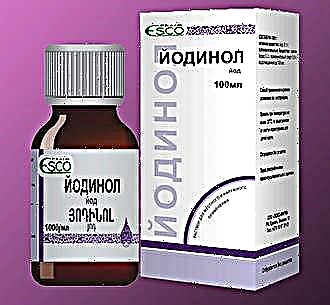Angina is an infectious disease that is dangerous for its complications, such as the development of rheumatism and glomerulonephritis. Moreover, the situation is aggravated in the presence of frequent sore throats, when the child suffers from this disease 6 or more times a year.
Considering the fact that the treatment of this pathology involves the appointment of antibiotics for at least 7 days, and a continuously ill child needs to increase the dosage of drugs and extend the duration of their use, a number of difficulties arise for the therapist. In order to understand the cause of frequent sore throats in a child, to find out why he is constantly ill, it is necessary to deal with the provoking factors of this disease. By eliminating or reducing this influence, it will be possible to influence the incidence and reduce it.
Provoking factors
 Angina is an infectious disease caused by a bacterial pathogen, streptococcus or staphylococcus. The source of the disease is a sick person or an infected person, as well as food and household items contaminated with this pathogen and can get into the patient's mouth and throat. In children, toys and common items can be such dangerous items, since the pathogen enters the body not only by airborne droplets, but also by alimentary. The remains of infected saliva on such objects, if hygiene is not observed, contribute to the penetration of streptococcus or staphylococcus into the body and their effect on the tonsils.
Angina is an infectious disease caused by a bacterial pathogen, streptococcus or staphylococcus. The source of the disease is a sick person or an infected person, as well as food and household items contaminated with this pathogen and can get into the patient's mouth and throat. In children, toys and common items can be such dangerous items, since the pathogen enters the body not only by airborne droplets, but also by alimentary. The remains of infected saliva on such objects, if hygiene is not observed, contribute to the penetration of streptococcus or staphylococcus into the body and their effect on the tonsils.
However, the development of the disease in children who have been in contact with a sick or infected patient is not necessary. Consequently, frequent sore throats in a child may be due to other factors. In order for a sore throat pathogen that has fallen on the tonsils to lead to the start of an infectious process, there must be accompanying predisposing factors.
Frequent sore throat in a child may be due to the following factors:
- reduced immunity;
- the presence of concomitant diseases in the nasopharynx;
- the presence of foci of chronic infection in the body;
- psychogenic factors;
- unfavorable environmental conditions.
Decreased immunity
Factors affecting a decrease in immunity in a child include inadequate nutrition of the child, overwork, and violation of the regimen. An important condition that contributes to strong immunity is breastfeeding, when the child receives all the necessary nutrients with breast milk. This circumstance has a significant impact on the formation of the entire immune system in the future. A breastfed baby is more likely to get strong immunity.
Premature babies are prone to any infectious diseases, who, due to their insufficient weight, do not receive the necessary vitamins and minerals, and the development of various organs and systems in them is delayed. The same applies to children with trauma during childbirth, concomitant congenital pathology.
It is noticed that it is asthenic
the child most often suffers from infectious diseases.
An important factor in the development of angina in children is heredity. Collecting an anamnesis of the disease, the ENT doctor or pediatrician often notes the presence of this pathology in the parents.
In a child, many defense mechanisms are only at the stage of formation. In this regard, it is very important to prevent any infectious disease is adequate care and general strengthening measures, such as
- adherence to sleep and rest;
- complete and balanced nutrition, including all the necessary vitamins, proteins, both fat and vegetable origin;
- compulsory walks in the fresh air;
- compliance of clothing with weather conditions;
- gymnastics or exercise;
- positive emotions.
Failure to comply with these conditions will lead to a malfunction of a particular system and a decrease in protective mechanisms. Such an organism will become more susceptible to the effects of pathogenic microorganisms.
Insufficient sleep, the absence of any nutrients in the diet, or local hypothermia reduces protective reactions.
The recommended hardening should be carried out dosed under the supervision of a pediatrician, taking into account the state of health of the child, his individual characteristics, the presence of concomitant pathology. Neglecting the recommendations of a specialist can only aggravate the process, contribute to hypothermia.
They significantly reduce immunity and postponed respiratory diseases, such as influenza, other acute respiratory viral infections. During this period, the body is most vulnerable and exposed to additional infectious agents, including those causing the development of angina. Reducing the incidence of respiratory infections will also prevent sore throat. In addition to the general strengthening measures necessary for any pathological process, simple adherence to hand hygiene, cleanliness of the room, and regular airing can be an effective prevention of ARVI.
Comorbidity
The circumstance why a child often suffers from angina is also associated with the presence of concomitant pathology, such as sinusitis, otitis media. Each of these diseases is caused by a specific pathogen, creating an infectious focus in the body. The entire immune system is forced to work with an increased load aimed at fighting these bacteria. Consequently, the body becomes less protected in the fight against other pathogenic agents, which leads to the development of angina. The process is aggravated by antibiotic therapy prescribed for these inflammatory processes.
Incorrect or unreasonable antibiotic treatment contributes to a significant decrease in the patient's immunity.
The appointment of this group of drugs is associated with a negative effect on compensatory reactions in the body. Inappropriate dosage and duration of drug administration lead to the development of a pathogen resistant to them. In this regard, the attachment of streptococcus or staphylococcus is more likely.
Contribute to the development of inflammatory processes of the nasopharynx, sinusitis and otitis media, enlarged adenoids, which is most typical for children. With their growth and increase in volume, they narrow the lumen of the auditory tube from the outside, contributing to the development of otitis media or sinusitis. Thus, finding out the cause of frequent sore throats in children, the otolaryngologist necessarily examines the adenoids.
Adenoiditis is one of the factors that determine the presence of a permanent focus of infection in the body.
There are often cases when the removal of these formations helps to reduce the frequency of sore throats.
An infectious focus that contributes to the development of this pathology in children may also be chronic inflammation in the oral cavity, such as caries. Such a sluggish infectious process is accompanied by a decrease in immunity, which means that it does not exclude the development of concomitant pathology. The same applies to any serious chronic diseases of various organs and systems, such as cardiovascular, gastrointestinal tract, systemic pathologies, tuberculosis, viral hepatitis, etc.
Psycho-emotional background
The psychogenic factor in the development of any pathological process is quite significant. Negative emotions, fear contribute not only to diseases of the nervous, endocrine system, skin diseases, but also provoke peptic ulcer or other pathology, the development of which is associated with a decrease in defense mechanisms.Close observation of children suffering from this disease several times a year made it possible to determine the dependence of the development of pathology on the presence of stressful situations and anxiety in the child.
Being in a children's team can be not only a source of increased morbidity due to close communication of children in the limited space of a playroom or classroom, but also be due to unwillingness to visit a team, as well as a lack of mutual understanding among peers or in the family. Having excluded concomitant pathology, the presence of foci of infection, genetically determined factors, the patient should be consulted by a neuropathologist, psychologist or psychotherapist. These specialists need to clarify the provoking factors due to the negative psycho-emotional background. Normalization of the situation in the family, childcare or educational institution helps to reduce the incidence of angina in children.
Adverse environmental background
 In recent years, problems of ecology and environmental protection have been increasingly spoken about from all kinds of tribunes, both political, public and medical. This is no coincidence, since the violation of the ecological situation affects the health of the people of the planet, adults and children, reducing life expectancy, leading to the development of chronic diseases of the lungs, cardiovascular system, oncopathology, and allergies.
In recent years, problems of ecology and environmental protection have been increasingly spoken about from all kinds of tribunes, both political, public and medical. This is no coincidence, since the violation of the ecological situation affects the health of the people of the planet, adults and children, reducing life expectancy, leading to the development of chronic diseases of the lungs, cardiovascular system, oncopathology, and allergies.
This negative effect of dusty air, chemical compounds in it, exhaust gases also affects the condition of the tonsils, reducing their barrier function and local immunity. Exposure to a streptococcal or staphylococcal pathogen under these conditions contributes to a more successful and rapid development of angina. Children suffering from this pathology are recommended to visit outside the industrial zone and city limits as often as possible. They will benefit from forest and sea air.

 the child most often suffers from infectious diseases.
the child most often suffers from infectious diseases.

